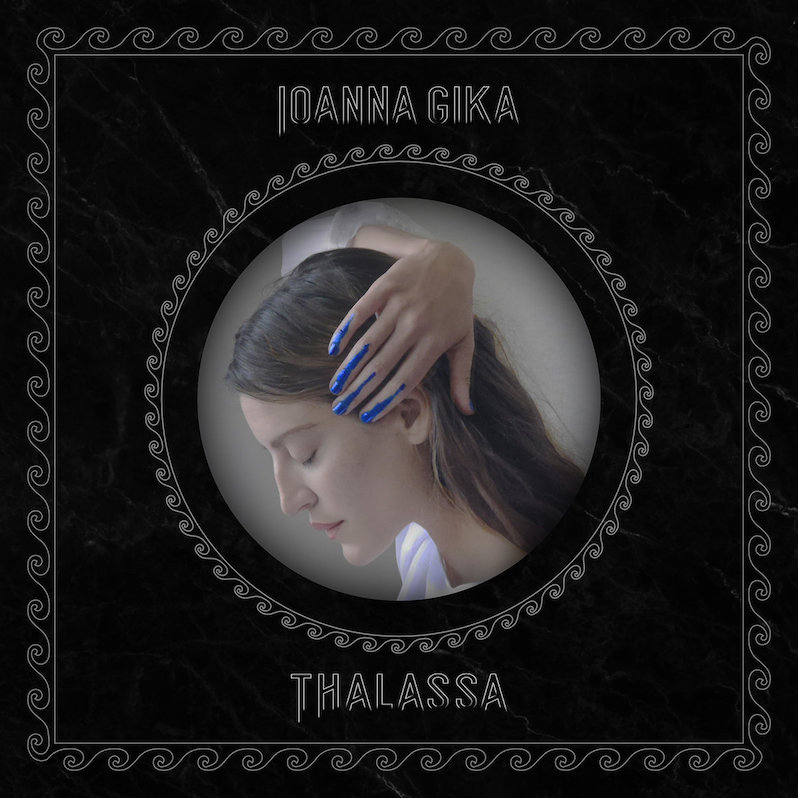Ioanna Gika : Thalassa

You can never go home again. But Ioanna Gika sought to find that out for herself. The Los Angeles-based artist and frontwoman of dream pop outfit Io Echo recently experienced a wave of deaths of loved ones, a defeating rite that anyone in their quarter- or third-life years is likely intimately and sadly familiar with, the end result of which was a pilgrimage of sorts to Greece, her ancestral home. It wasn’t as she remembered it—structures crumbling, images of hate and fascism spray-painted on walls, and an overall sense of loss and alienation. It’s a scene that she describes in the leadoff track to her solo debut album, Thalassa, “Roseate”: “These city walls our fathers built/ They have crumbled now/ But I can’t let go.”
Gika is literally describing Greece, but she could just as easily be talking about anywhere else in the world given how fragile our structures and systems have proven to be when eroded at the base—the continued erosion of democracy in the U.S., the ineffectual post-Brexit government in the UK, the rise of right-wing groups pretty much everywhere, and the mask-off reinstatement of full-fledged fascism in Brazil. It’s a mess out there. But Thalassa isn’t a political album; it’s in fact a deeply personal album—written while Gika was in Greece—but one whose internal struggles seem to echo an external kind of helplessness. It’s an elegy for things that have gone, many of which will never come back.
As elegies go, it’s stunningly beautiful. Its arrangements balance neoclassical gothic grandeur with synth-pop immediacy, sharing a sonic kinship with artists like Zola Jesus or Chelsea Wolfe before she welcomed doom metal riffs into her repertoire. “Out of Focus” is a balance of dense art-rock sounds and an eerie, early Cocteau Twins-like etherealism. Gika’s voice is as otherworldly as it is evocative, her repetitions of “There was nothing to do” morphing from a mournful resignation to a chilly stoicism. The brief title track has a lushly cinematic quality, as synths wash against the delicate progression of harp plucks, and “Weathervane” is a haunted slow burn in which Gika is haunted by her regrets, none of which have any easy conclusions: “Did I love you too much? Or never quite enough?”
The pain and loss that informed Thalassa is palpable, but it’s rendered into something undeniably gorgeous and deeply moving. And on songs like “New Geometry,” it can even rise up from defeat into something powerful, driving, physical. And ultimately, this isn’t an album about giving up or letting go—it’s about making sense of the hurt and figuring out where to go from there. It’s an album of endings, but it’s also one of new beginnings.
Similar Albums:
 Zola Jesus – Okovi
Zola Jesus – Okovi
 Chelsea Wolfe – Pain is Beauty
Chelsea Wolfe – Pain is Beauty
 Bat for Lashes – The Bride
Bat for Lashes – The Bride
Jeff Terich is the founder and editor of Treble. He's been writing about music for 20 years and has been published at American Songwriter, Bandcamp Daily, Reverb, Spin, Stereogum, uDiscoverMusic, VinylMePlease and some others that he's forgetting right now. He's still not tired of it.

